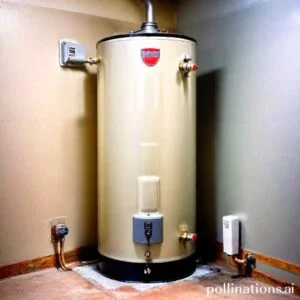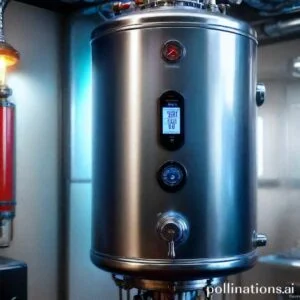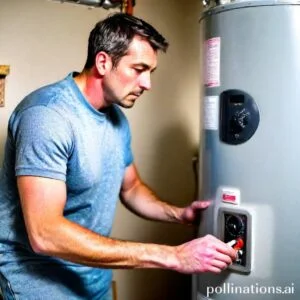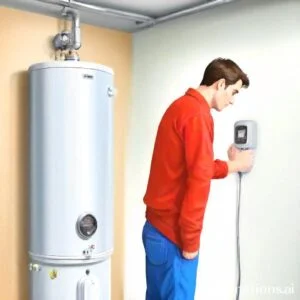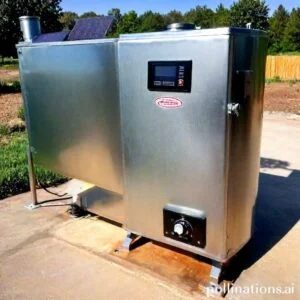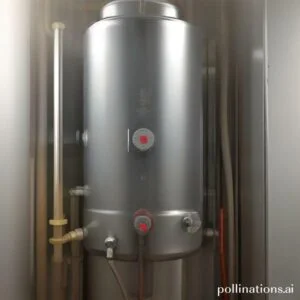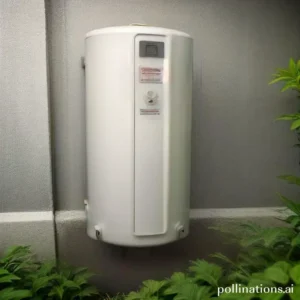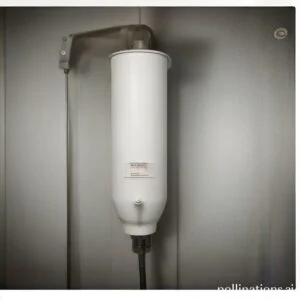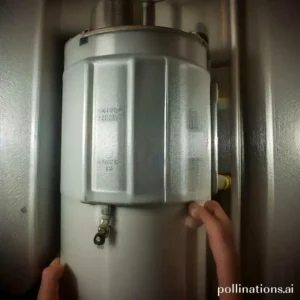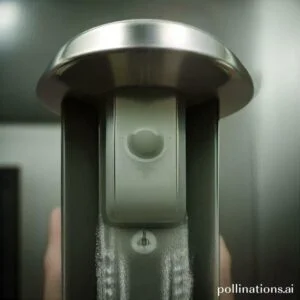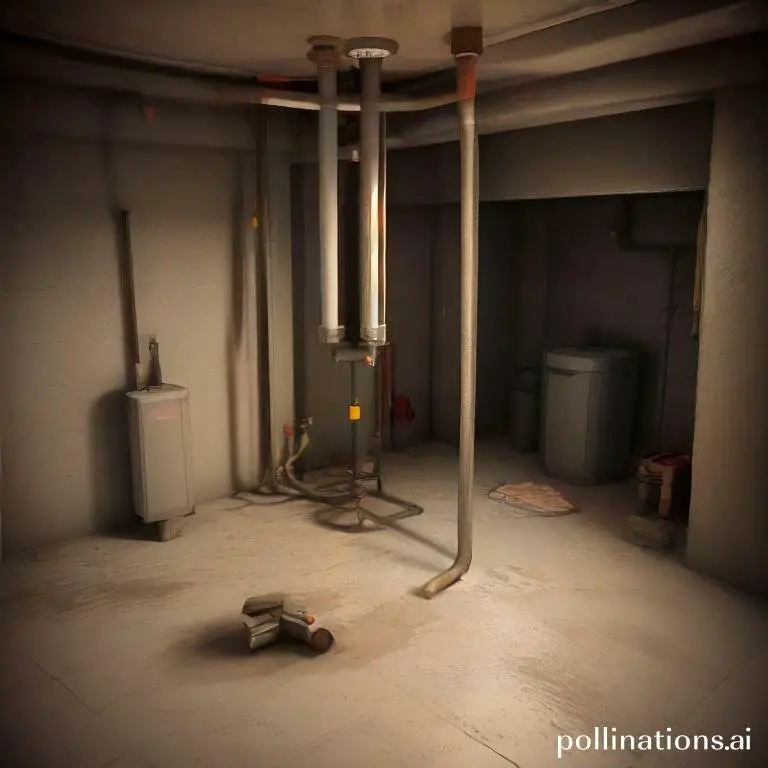
II. Identifying common issues with temperature sensors, such as inaccurate readings or failure to activate the heating element.
III. Troubleshooting and resolving temperature sensor problems through calibration, replacement, or professional repair services.
Water heater temperature sensor issues can cause a variety of problems in your home’s hot water supply. From inconsistent temperature to complete failure, these issues can be frustrating and inconvenient.
In this article, we will discuss the common signs of a faulty temperature sensor, the potential causes of these issues, and the steps you can take to address them. By grasping the role of the temperature sensor and how to troubleshoot problems, you can ensure a reliable and efficient hot water supply in your home.
Signs of a Faulty Water Heater Temperature Sensor
Inaccurate Temperature Readings
One of the key signs that your water heater temperature sensor may be faulty is when you notice inaccurate temperature readings. The sensor is responsible for detecting and regulating the water temperature in your heater, so if it is not functioning properly, you may notice that the temperature readings on your heater’s display do not match the actual temperature of the water. This can lead to discomfort and inconvenience, as you may not be able to enjoy hot water when you need it.
Water Temperature Fluctuations
Another indicator of a faulty temperature sensor is water temperature fluctuations. If you experience sudden changes in water temperature meanwhile using your hot water, it could be a sign that the temperature sensor is not providing accurate readings to the heater’s control system. These fluctuations can be frustrating and may affect your ability to properly use hot water for tasks such as bathing or washing dishes.
No Hot Water
A faulty temperature sensor can sometimes cause a complete lack of hot water. If the sensor is not functioning correctly, it may not send the proper signals to the heater to heat the water. This can leave you without hot water for showers, cleaning, and other daily activities that require hot water. If you find yourself without hot water, it is essential to check the temperature sensor as a potential cause.
Tripped Circuit Breaker
In some cases, a faulty temperature sensor can trip the circuit breaker connected to the water heater. This happens when the sensor malfunctions and sends incorrect signals to the heater, causing it to draw excessive power. The circuit breaker detects this surge and shuts off the power to prevent damage or safety hazards. If you notice that your water heater keeps tripping the circuit breaker, it is worth investigating the temperature sensor as a possible culprit.
Strange Noises
In closing, a faulty temperature sensor can sometimes cause strange noises coming from your water heater. These noises can include hissing, popping, or banging sounds. The sensor’s malfunction can disrupt the normal heating process, leading to unusual pressure or temperature changes within the heater. If you hear any unusual noises coming from your water heater, it is advisable to have the temperature sensor checked along with other potential causes.
| Sign | Description |
|---|---|
| Inaccurate Temperature Readings | Temperature readings on the heater’s display do not match the actual water temperature. |
| Water Temperature Fluctuations | Sudden changes in water temperature meanwhile using hot water. |
| No Hot Water | Complete lack of hot water due to the sensor not sending proper signals to the heater. |
| Tripped Circuit Breaker | The temperature sensor causing the circuit breaker to trip due to incorrect signals. |
| Strange Noises | Hissing, popping, or banging sounds originating from the water heater. |
Causes of Water Heater Temperature Sensor Issues
The temperature sensor in a water heater plays a crucial role in maintaining the desired temperature of the water. Notwithstanding, there are several factors that can lead to issues with the temperature sensor, affecting its performance and causing inconvenience to the users.
1. Sediment Build-Up
Sediment build-up is a common cause of temperature sensor issues in water heaters. Over time, minerals and debris present in the water can accumulate at the bottom of the tank, including the temperature sensor. This build-up can interfere with the sensor’s ability to accurately measure the water temperature, leading to inconsistent heating and potential overheating or underheating of the water.
2. Electrical Issues
Electrical problems can also contribute to temperature sensor issues. Faulty wiring or connections can disrupt the flow of electricity to the sensor, causing it to malfunction or provide inaccurate readings. This can result in inadequate heating or an inability to maintain a consistent temperature in the water heater.
3. Age of the Water Heater
As water heaters age, their components, including the temperature sensor, may deteriorate or become less reliable. The sensor may become less responsive or develop faults, leading to temperature inconsistencies. Regular maintenance and replacement of aging components can help prevent or resolve these issues.
4. Faulty Wiring
Faulty wiring within the water heater can cause temperature sensor problems. Wiring issues, such as loose connections, damaged wires, or short circuits, can disrupt the proper functioning of the sensor. Pivotal to have a professional inspect and repair any wiring problems to ensure the sensor operates correctly.
5. Corrosion
Corrosion can also affect the temperature sensor in a water heater. Exposure to moisture and rust over time can lead to corrosion on the sensor’s contacts, impairing its ability to accurately measure the water temperature. Regular maintenance and corrosion prevention measures can help mitigate this issue.
How to Troubleshoot Water Heater Temperature Sensor Issues
In the realm of your water heater, maintaining the right temperature is crucial for comfort and efficiency. In contrast, if you’re experiencing issues with your water heater temperature sensor, it’s important to address them promptly. Follow these steps to troubleshoot and resolve temperature sensor problems:
1. Turn off Power Supply
Before attempting any troubleshooting, ensure your safety by turning off the power supply to your water heater. This will prevent any electrical accidents and allow you to work on the sensor without any risk.
2. Check the Wiring
Inspect the wiring connected to the temperature sensor. Look for any loose connections, frayed wires, or signs of damage. If you notice any issues, carefully repair or replace the wiring to ensure proper functionality.
3. Inspect the Temperature Sensor
Take a close look at the temperature sensor itself. Check for any physical damage or corrosion. Clean the sensor using a soft cloth or brush, ensuring there is no debris or buildup that could interfere with its performance.
4. Test the Sensor’s Resistance
Using a multimeter, measure the resistance of the temperature sensor. Compare the reading with the manufacturer’s specifications to determine if the sensor is functioning correctly. If the resistance is outside the acceptable range, it may be necessary to replace the sensor.
5. Replace the Sensor
If all previous steps have failed to resolve the issue, it’s time to replace the temperature sensor. Consult your water heater’s manual or seek professional assistance to ensure you select the correct sensor for your specific model.
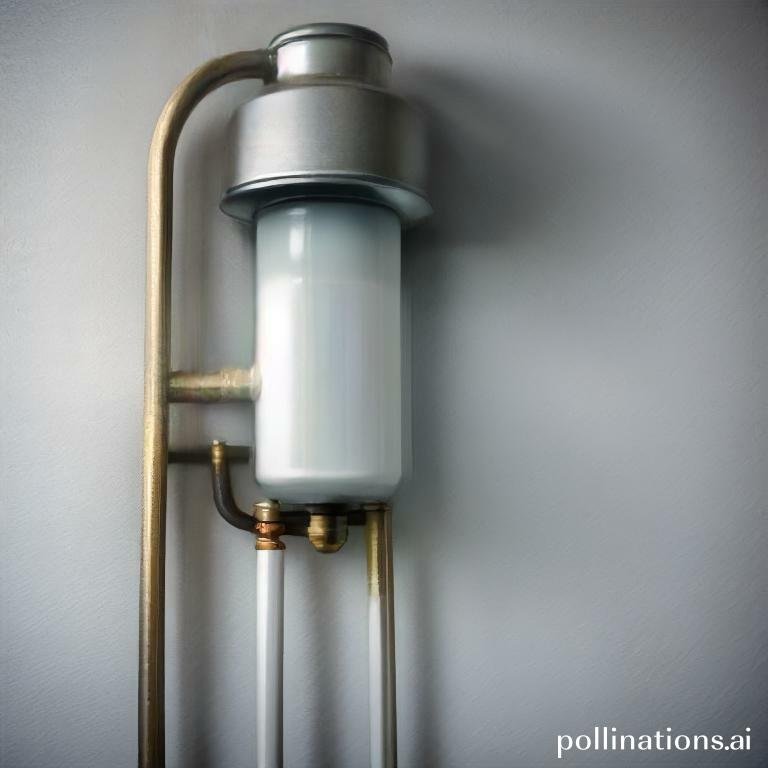
Preventive Measures to Avoid Water Heater Temperature Sensor Issues
1. Regular Maintenance
Regular maintenance is crucial in preventing water heater temperature sensor issues. By scheduling regular maintenance checks, you can ensure that the temperature sensor is functioning optimally. This includes inspecting all components of the water heater, cleaning any debris or sediment buildup, and testing the accuracy of the sensor.
2. Flushing the Tank
Flushing the tank is an important preventive measure to avoid water heater temperature sensor issues. Over time, sediment and mineral deposits can accumulate in the tank, affecting the performance of the temperature sensor. By flushing the tank regularly, you can remove these deposits and maintain the efficiency of the sensor.
3. Checking the Anode Rod
The anode rod plays a crucial role in preventing corrosion in the water heater. Corrosion can lead to sensor malfunctions. Regularly checking and replacing the anode rod when necessary can help prevent water heater temperature sensor issues and extend the lifespan of your water heater.
4. Monitoring the Temperature Settings
Monitoring the temperature settings of your water heater is essential in avoiding temperature sensor issues. Ensure that the temperature is set at the appropriate level to prevent overheating or underheating. Regularly check the temperature readings to ensure accuracy and make adjustments if needed.
5. Hiring a Professional
In the realm of maintaining and troubleshooting water heater temperature sensor issues, it is highly recommended to hire a professional. A qualified technician can perform a thorough inspection, diagnose any potential problems, and provide the necessary repairs or replacements. They have the expertise and tools to ensure that your water heater operates efficiently and that the temperature sensor functions correctly.
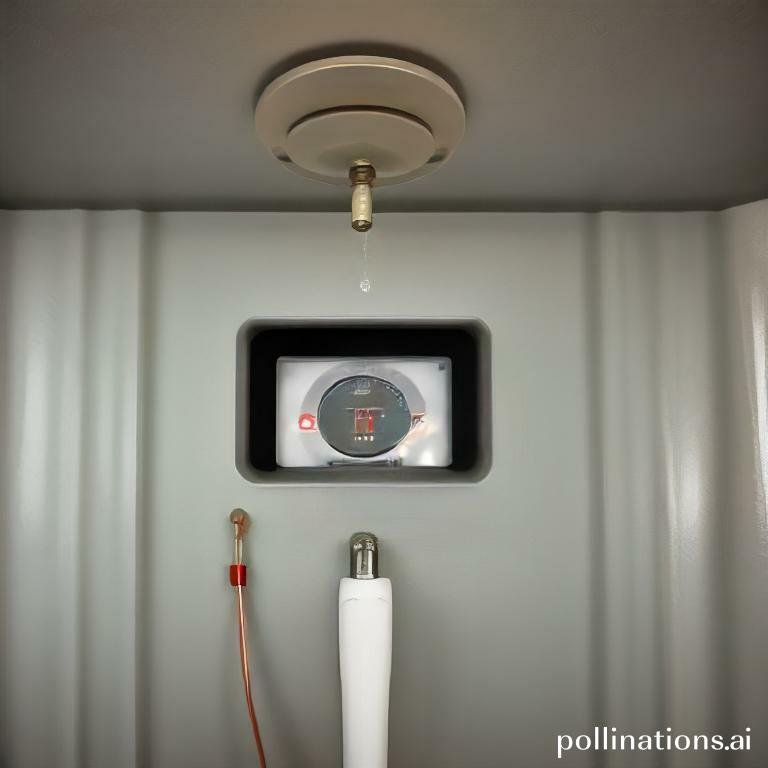
When to Seek Professional Help
Seeking professional help is essential in certain situations related to your electrical system and water heater. Below are some specific scenarios where it is recommended to call a professional:
1. Complex Electrical Issues
If you encounter complex electrical issues in your home, such as frequent power surges, circuit breaker tripping, or flickering lights, it is crucial to seek the assistance of a qualified electrician. These issues could indicate underlying problems that require expert knowledge and experience to diagnose and repair.
2. Gas Water Heaters
Gas water heaters operate using combustible fuel, which can be potentially dangerous if not handled properly. If you have a gas water heater and notice any unusual smells, leaks, or issues with the pilot light, it is advisable to contact a professional plumber or technician who specializes in gas appliances.
3. Age of the Water Heater
As water heaters age, they become more prone to malfunctioning and developing leaks. If your water heater is nearing the end of its expected lifespan, which is typically around 8 to 12 years, it is wise to consult a professional. They can assess the condition of your water heater and recommend whether a repair or replacement is necessary.
4. Lack of Experience
Attempting to fix electrical or water heater issues without the necessary knowledge and experience can be risky and may lead to further damage or personal injury. If you are unsure about how to troubleshoot or repair the problem, it is best to leave it to the professionals who have the expertise to handle the job safely and effectively.
5. Safety Concerns
If you have concerns about the safety of your electrical system or water heater, it is imperative to consult a professional. They can perform a thorough inspection to identify any potential hazards and implement the necessary measures to ensure the safety of your home and family.
Bottom Line
Water heater temperature sensor issues can be frustrating and potentially dangerous. Indispensable to address these issues promptly to ensure the safety and efficiency of your water heater. Regular maintenance and inspection can help prevent sensor problems from occurring. If you do experience issues, it is best to consult a professional to diagnose and repair the problem. Ignoring temperature sensor issues can lead to higher energy bills, reduced hot water supply, and even damage to your water heater. By taking proactive steps to maintain your water heater and address any issues promptly, you can ensure reliable and safe hot water for your home.
Read More:
1. How To Calibrate Water Heater Temperature Settings?
2. Impact Of Temperature On Water Heater Efficiency
